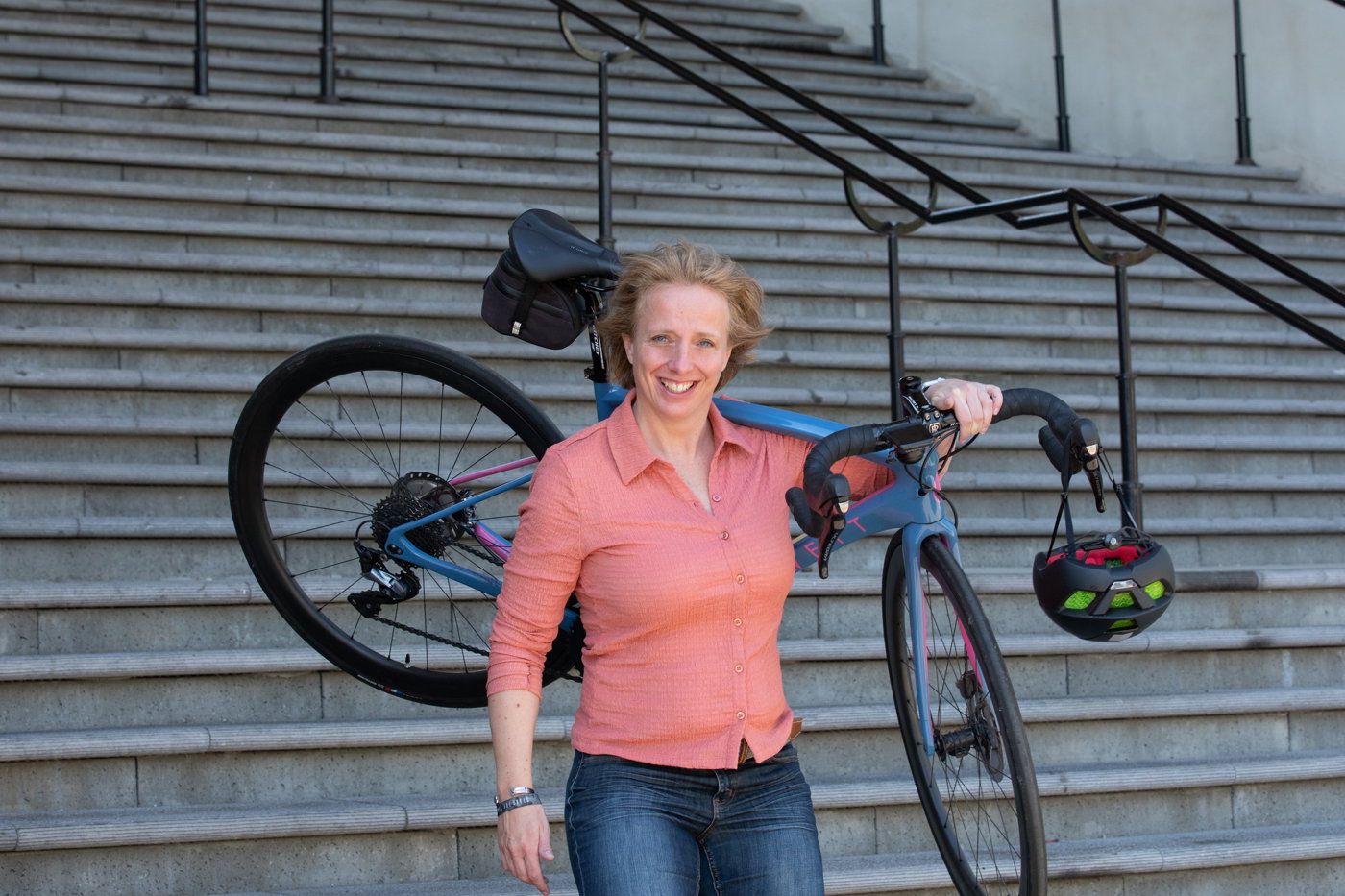Who are these people who make a conscious choice to work in the pension sector? What do they do all day for your pension? And what do they enjoy about their work? Let’s take a look behind the scenes. Linda Kleeven (45) is a Business & Information Consultant. “The great thing is that I can be involved during the decision-making as well as the implementation phase.”
What does a Business & Information Consultant do exactly?
“I work at the cutting edge of IT and pensions. This sector is undergoing many and ongoing changes both internally as well as in response to legislation and pension regulations, and I focus particularly on how those changes impact people’s entitlements.”
And talking about changes; a lot is still to happen with respect to pensions.
“Yes, with the Future Pensions Act, major changes are in the pipeline and all providers are working on this. What’s great is that I can work on two sides. I help think about possible scenarios and solution directions in the decision-making phase. What do these scenarios and solution directions mean exactly for which groups of people and how will these impact feasibility and systems? And once a decision is taken, it also needs to be realized. That’s the other side of my work: I can work on the detail of new regulations and ensure that processes and systems are amended accordingly. This combination is one of the best things about my work. It makes it extremely varied.”
What is an average day like for you?
“That’s different each day and that’s exactly what makes my work so great. Each change is a joint process. I usually work with people from different teams. For example, I work with lawyers, actuaries, account managers, and communications advisors during preparation and when we embark on the internal realization, I consult with information analysts, system developers, and project managers. I’m someone who enjoys working in teams toward a certain result, based on content. I can do that really well at APG. And there are also days where I’m only calculating, working through things, devising solutions, and analyzing. So I can express my nerdy side too, which is also fantastic.”
How long have you been working at APG?
“Twenty-two years. When I say that out loud I think: really, so long? I never could have imagined that when I first started at the then ABP. But I’ve always been able to develop here in a really natural way. You can do so many different things internally as it’s such a big company. Something new always came across my path, which kept it challenging. Time flies when you’ve got great work and great colleagues.”
How did you end up in the pension world? What is your background?
“I did higher education in economics and management. After graduating I was able to start at ABP pension fund, where I’d done an internship. APG didn’t yet exist as an independent pension provider. At that time, you were happy if you could find a job and I saw so many opportunities at such a big organization. I’ve also always thought that pensions were amazing. I started in the surviving dependents’ pensions department, where I had a lot of direct contact with customers. It was an amazing time because I could help people in a difficult phase of their lives. That immediately motivates you to do your work really well. I kept developing from there; from pension administration to testing pension details and systems to describing calculation rules. There were also always so many possibilities to follow all kinds of training and courses. When APG was established and we also started managing pensions for PWRI and later bpfBOUW, this all needed to be entered into the systems. It was fantastic to be part of such change processes. With the new pension scheme approaching and with a lot changing at once, all that experience will come in handy.”
How do people respond when you tell them what kind of work you do?
“That depends, but I see lots of people thinking, hmm, interesting... not.”
What do you like so much about your work?
“That it’s so varied. The Business Improvement & Change department I work in now is busy with changes. So, by definition, we are always working on something different here. That could be a change based on legislation and regulations that applies to all funds, or it could concern an internal improvement, or a fund-specific change that you need to communicate well to your target group. That variation is what makes it so enjoyable. I can imagine that it appears to be a boring field for outsiders, but it’s surprisingly dynamic.”
What motivates you?
“For me, it’s also important to work on something I believe in. It’s a fantastic thing to have a level of income security if you become disabled, older, or for your surviving dependents if you die. I personally consider collectivity and solidarity in our pension system to be vital, as is sharing risks together. I hope this remains the case in the future too: That’s really important to me.”
What characteristics make you suitable for this job?
“It helps that I have a feeling for producing analyses and calculations. But I think the most important thing is that I can empathize with people and connect well with different types of people. Actuaries, lawyers, and account managers all have completely different perceptions than system developers and project managers. My department is in the middle and we try to ensure that they understand each other and don’t talk at cross purposes.”
